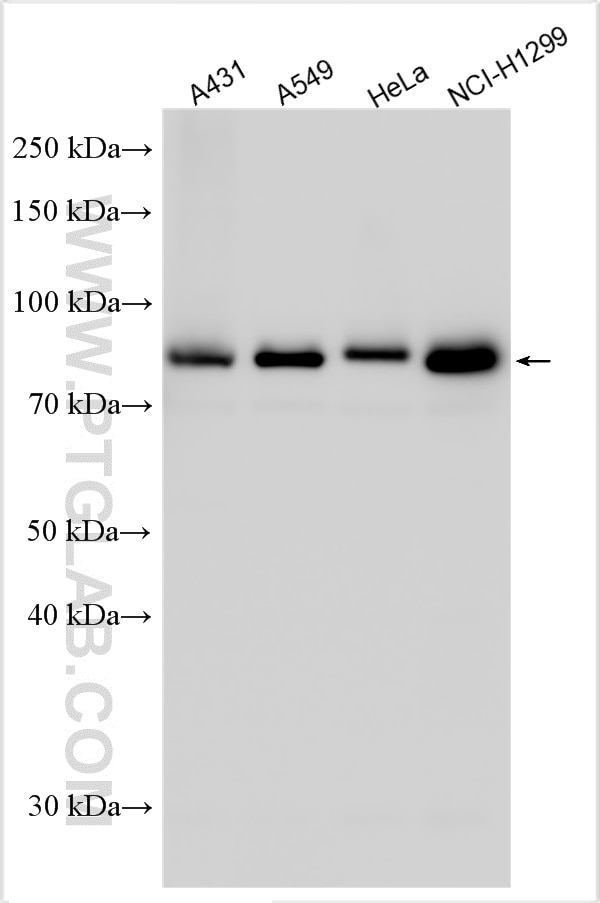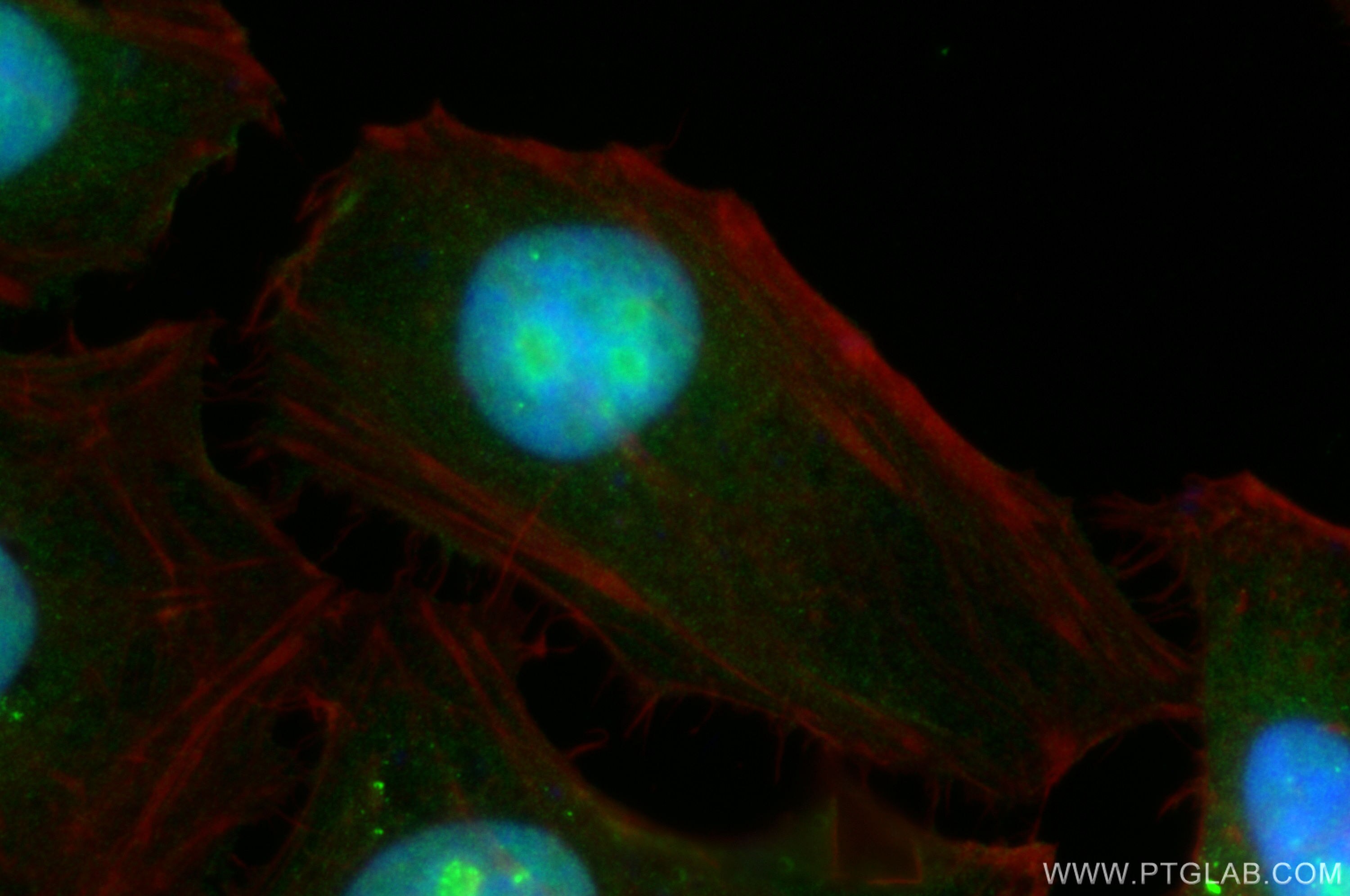Tested Applications
| Positive WB detected in | A431 cells, A549 cells, HeLa cells, NCI-H1299 cells |
| Positive IF/ICC detected in | HeLa cells, U2OS cells |
Recommended dilution
| Application | Dilution |
|---|---|
| Western Blot (WB) | WB : 1:500-1:2000 |
| Immunofluorescence (IF)/ICC | IF/ICC : 1:200-1:800 |
| It is recommended that this reagent should be titrated in each testing system to obtain optimal results. | |
| Sample-dependent, Check data in validation data gallery. | |
Product Information
31014-1-AP targets CD3EAP in WB, IF/ICC, ELISA applications and shows reactivity with human samples.
| Tested Reactivity | human |
| Host / Isotype | Rabbit / IgG |
| Class | Polyclonal |
| Type | Antibody |
| Immunogen | CD3EAP fusion protein Ag34108 Predict reactive species |
| Full Name | CD3e molecule, epsilon associated protein |
| Calculated Molecular Weight | 55 kDa |
| Observed Molecular Weight | 80-90 kDa |
| GenBank Accession Number | NM_012099.1 |
| Gene Symbol | CD3EAP |
| Gene ID (NCBI) | 10849 |
| RRID | AB_3669815 |
| Conjugate | Unconjugated |
| Form | Liquid |
| Purification Method | Antigen affinity Purification |
| UNIPROT ID | O15446 |
| Storage Buffer | PBS with 0.02% sodium azide and 50% glycerol , pH 7.3 |
| Storage Conditions | Store at -20°C. Stable for one year after shipment. Aliquoting is unnecessary for -20oC storage. 20ul sizes contain 0.1% BSA. |
Background Information
Human RNA polymerase I (Pol I)-specific subunit, previously identified as ASE-1 and as CD3ɛ-associated signal transducer (CAST), CD3EAP is a 55 kDa nucleolar autoantigen that has an apparent molecular mass of 90 kDa (PMID: 11199923). CD3EAP/hPAF49 contains a single tyrosine residue at position 82 (Tyr82), which is phosphorylated upon stimulation of the T-cell receptor. Western blot analysis detected CD3EAP at an apparent molecular mass of ~80-90 kDa.
Protocols
| Product Specific Protocols | |
|---|---|
| WB protocol for CD3EAP antibody 31014-1-AP | Download protocol |
| IF protocol for CD3EAP antibody 31014-1-AP | Download protocol |
| Standard Protocols | |
|---|---|
| Click here to view our Standard Protocols |







